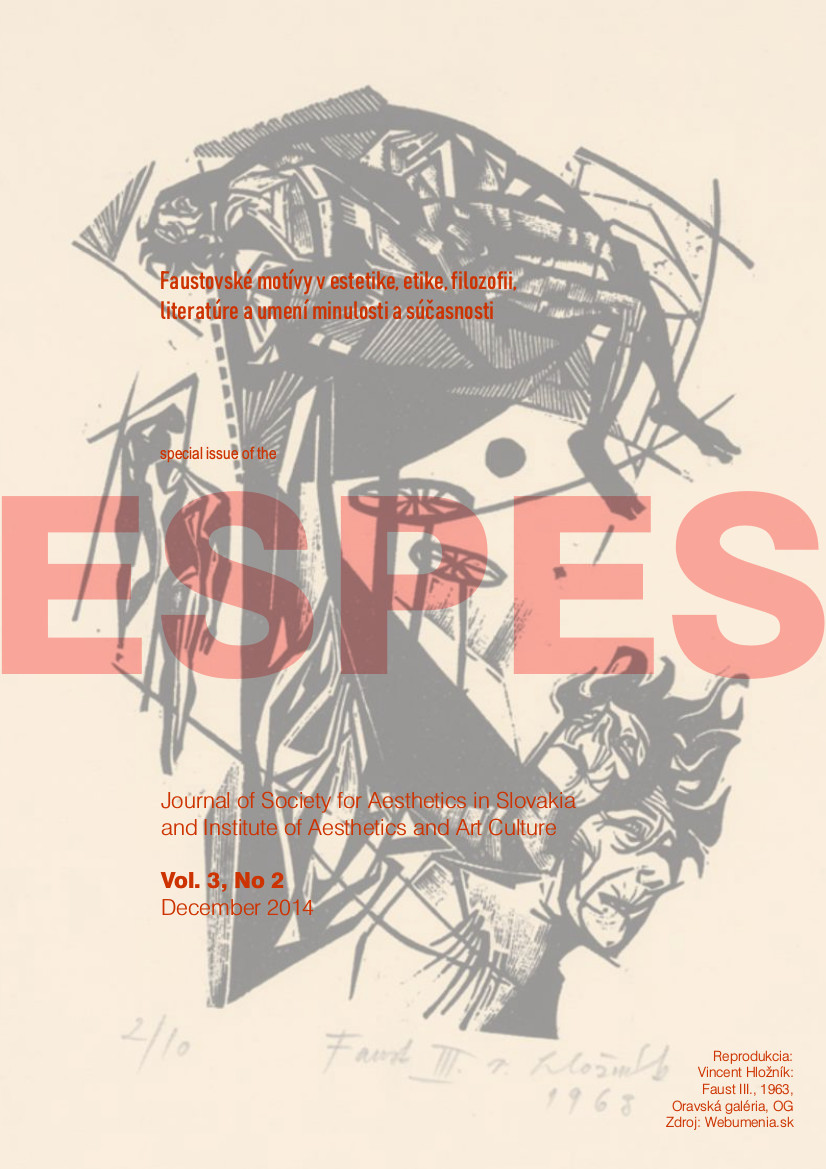Fiktívne hudobné kompozície Th. W. Adorna v románe Thomasa Manna „Doktor Faustus“
Fictional Musical Compositions of Th. W. Adorna in Thomas Mann's novel "Doctor Faustus"
Author(s): Vladimír FulkaSubject(s): Literary Texts, Music, Aesthetics
Published by: Spoločnosť pre estetiku na Slovensku a Inštitút estetiky a umeleckej kultúry Filozofickej fakulty Prešovskej univerzity v Prešove
Keywords: fictious poetics;spoken music;atonality;fugue;dodecaphony;serialism;avant-garde in music;rationality;demonism;mysticism;esoterism;hermeneutics;harmony;counterpoint;polyphony;oratory;cantata
Summary/Abstract: Thomas Mann ́s novel Doktor Faustus. Das Leben des deutschen Tonsetzers Adrian Leverkühn erzählt von seinem Freunde (1947) arose from a cooperation between Th. Mann and and Th.W.Adorno. Adorno was not only a tutor in issues of the history of music, the theory of music and the aesthetics of music: he was in a sense, too, co-author of the novel: he was a „spiritus movens“ of the novel, who wrote analysis of music attributed to fictious musicians in the novel, to Leverkühn, Kretzschmar, and, of course, to Mefisto. We find a specific phenomenon of „fictious music“ in this novel. Adorno ́s task was to give a final version to Mann ́s notions and literary phantasies on music, to „compose“ and to depict non-existing compositions of a fictious composer Leverkühn. Adorno ́s „composition“ were devised in accordance to the real compositions of A.Schönberg and I. Stravinsky. Mann ́s/Adorno ́s fictious compositions are in the focus of many analysis of the novel and also the fucus of this study.
Journal: ESPES
- Issue Year: 3/2014
- Issue No: 2
- Page Range: 27-36
- Page Count: 10
- Language: Slovak

